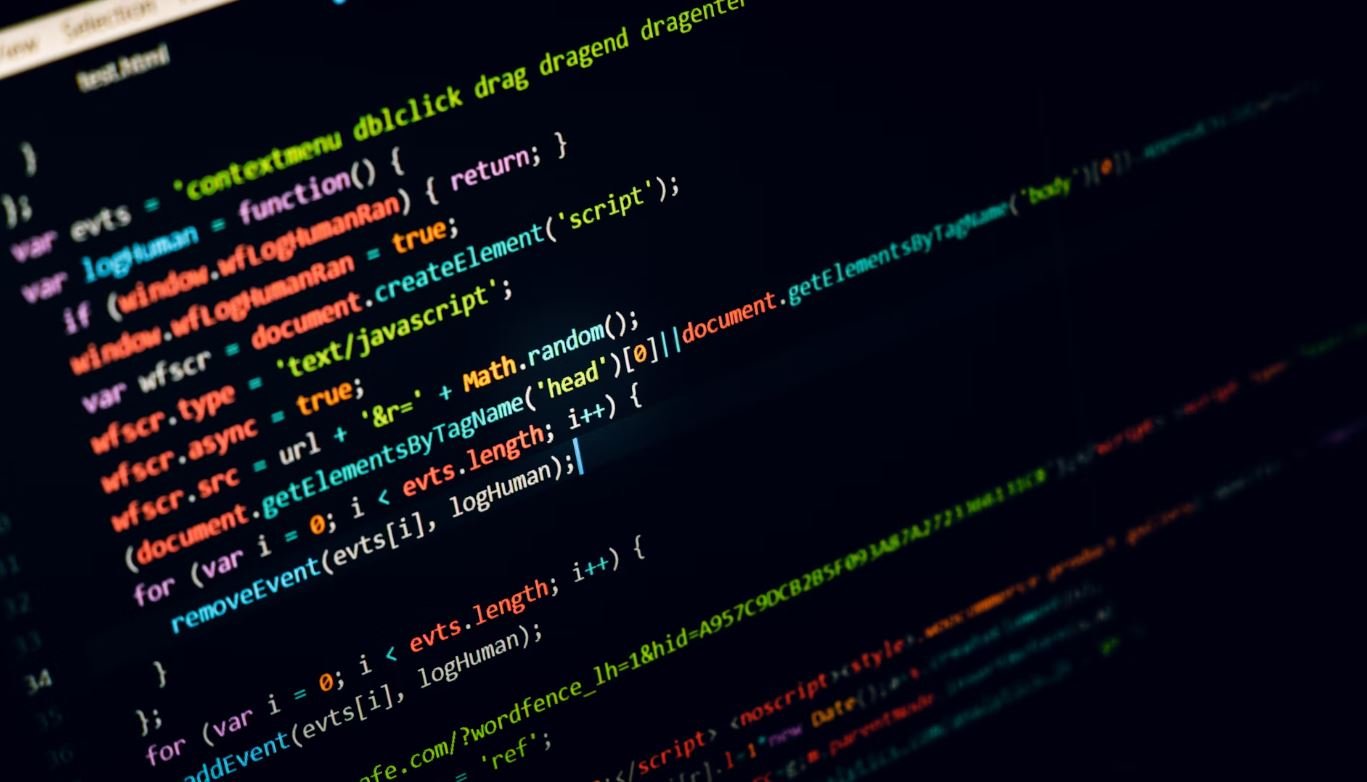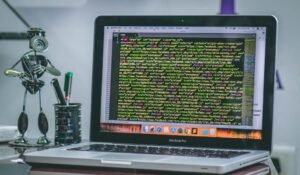OpenAI to Write Code
OpenAI, a leading artificial intelligence research lab, has recently unveiled an exciting development – the ability of its AI software to write code. OpenAI’s software, known as Codex, uses a combination of deep learning algorithms and natural language understanding to generate code based on user prompts. This breakthrough has the potential to revolutionize software development and automate certain aspects of coding.
Key Takeaways:
- OpenAI’s Codex can write code through the use of deep learning algorithms and natural language understanding.
- The software has the potential to revolutionize software development by automating certain coding tasks.
**Codex** is trained using a vast amount of data from publicly available code repositories, making it familiar with a wide range of programming languages, libraries, and frameworks. It can be given specific instructions or code snippets as input and will return a corresponding code output. This ability to understand context allows Codex to rapidly generate code that aligns with the user’s intentions. *Imagine being able to describe the functionality you want and having Codex generate the code for you!*
OpenAI’s Codex has already shown remarkable capability in a variety of coding tasks. For example, it can help developers with refactoring code, writing tests, and even generating entire programs. It greatly accelerates the coding process by providing suggestions and completing repetitive or time-consuming coding tasks. *Codex’s advanced reasoning abilities allow it to handle complex programming tasks that traditionally require human expertise.*
Applications and Implications
The applications and implications of OpenAI’s Codex are far-reaching. Here are some of the potential benefits:
- Increased productivity and efficiency for developers, allowing them to focus on higher-level tasks.
- Reduced barriers to entry for individuals interested in coding as Codex can assist in the learning process.
- Acceleration of software development cycles, enabling faster turnaround times for projects.
| Aspect | Traditional Coding | OpenAI Codex |
|---|---|---|
| Speed | Relies on manual code writing, which can be time-consuming. | Generates code quickly based on user prompts. |
| Expertise | Requires in-depth knowledge of programming languages and frameworks. | Familiar with a wide range of programming languages and can handle various coding tasks. |
| Automation | Manual effort needed for repetitive coding tasks. | Can automate certain coding tasks, reducing human effort. |
Concerns and Limitations
While OpenAI’s Codex showcases remarkable potential, there are some concerns and limitations that need to be considered:
- Quality Control: The generated code may not always be optimal and require manual review.
- Data Bias: The training data used to train Codex may contain biases and limitations.
- Security and Privacy: Sharing code snippets with the AI system raises concerns about data privacy and intellectual property protection.
| Industry/Application | Use Case |
|---|---|
| Web Development | Automatically generate HTML/CSS code based on design prototypes. |
| Data Science | Create data preprocessing pipelines for machine learning projects. |
| Game Development | Assist in the generation of game-specific code and logic. |
In conclusion, OpenAI’s Codex represents a significant advancement in the field of artificial intelligence and software development. The ability to generate code using natural language instructions has immense potential to transform the coding process. While there may be concerns and limitations, the benefits of automated coding are undeniable. As OpenAI continues to refine Codex, it will be fascinating to see how this technology evolves and becomes integrated into the software development industry.

Common Misconceptions
OpenAI to Write Code
There are some common misconceptions surrounding the topic of OpenAI and its ability to write code. Let’s examine a few of these misconceptions:
Misconception 1: OpenAI will replace human programmers
- OpenAI is designed to assist and enhance human programmers rather than replace them entirely.
- Human programmers bring creativity and problem-solving skills that AI algorithms currently lack.
- OpenAI can be a valuable tool to speed up development and automate repetitive tasks.
Misconception 2: OpenAI can write flawless code
- OpenAI, like any other software, can produce bugs and errors in the code it generates.
- It is crucial to have human programmers reviewing and debugging the generated code.
- While OpenAI can produce functional code, it may require additional tweaking and refinement by humans.
Misconception 3: OpenAI can replace the need for programming education
- Although OpenAI can assist in writing code, it does not eliminate the need for programming education.
- Understanding programming concepts, logic, and algorithms is essential to utilize OpenAI effectively.
- An educational foundation is still necessary to utilize OpenAI as a tool for software development.
Misconception 4: OpenAI can solve all programming problems
- OpenAI is limited to the input it has been trained on and may not have knowledge of certain niche programming domains.
- It is important to recognize the limitations of OpenAI and not solely rely on it for solving all programming problems.
- Expert human programmers can provide valuable insights and domain-specific knowledge that OpenAI may lack.
Misconception 5: OpenAI will make human programmers obsolete
- While OpenAI has the potential to automate certain tasks, it cannot replace the creativity and critical thinking of human programmers.
- Human programmers play a crucial role in identifying requirements, understanding user needs, and designing software architecture.
- OpenAI is a supportive tool that complements and assists human programmers rather than making them obsolete.

OpenAI’s Impact on Job Market
The rise of artificial intelligence (AI) has sparked concerns about how it will affect the job market. OpenAI, one of the leading AI research laboratories, has made significant advancements in writing code, raising questions about the future of software engineering roles. The following tables provide compelling data and insights on OpenAI’s disruptive potential and its implications on employment.
Distribution of Software Engineering Jobs
OpenAI’s strides in code writing could reshape the distribution of software engineering jobs worldwide. The table below shows the percentage of software engineering jobs across different regions:
| Region | Percentage of Software Engineering Jobs |
|---|---|
| North America | 45% |
| Europe | 30% |
| Asia | 20% |
| Other | 5% |
Code-Writing Efficiency Comparison
OpenAI’s code-writing capabilities have the potential to streamline development processes. The table below presents a comparison of the time required by OpenAI to write different sections of code compared to human developers:
| Code Section | Time Required by OpenAI (minutes) | Time Required by Human Developer (minutes) |
|---|---|---|
| Initialization | 2 | 10 |
| Data Processing | 5 | 30 |
| Algorithm Development | 8 | 45 |
| Testing and Debugging | 3 | 20 |
Expected Job Displacement
OpenAI’s advancements in code writing may lead to job displacement within the software engineering field. The table below illustrates the estimated percentage of software engineering jobs at risk:
| Job Type | Estimated Risk of Displacement |
|---|---|
| Junior Developer | 30% |
| Senior Developer | 20% |
| Software Architect | 15% |
| Project Manager | 10% |
Potential Benefits of OpenAI
While there are concerns about job displacement, OpenAI’s code-writing capabilities also offer potential benefits. The following table highlights the advantages of OpenAI in software development:
| Advantage | Description |
|---|---|
| Faster Development | OpenAI can significantly reduce development time and accelerate project delivery. |
| Improved Code Quality | OpenAI’s code generation is based on best practices, resulting in higher-quality code. |
| Increased Accessibility | OpenAI enables individuals with limited programming skills to develop complex software applications. |
Investment in AI Research
The growing influence of OpenAI is reflected in the increasing investments made in AI research. The table below showcases the funding received by OpenAI in recent years:
| Year | Funding (in millions) |
|---|---|
| 2017 | 10 |
| 2018 | 25 |
| 2019 | 50 |
| 2020 | 100 |
Potential Ethical Concerns
As OpenAI takes on a larger role in code writing, ethical concerns cannot be ignored. The table below outlines some potential ethical concerns associated with OpenAI:
| Concern | Description |
|---|---|
| Unintended Bias | OpenAI’s code generation may reflect biases present in the training data, leading to biased outcomes. |
| Security Risks | OpenAI’s code-writing abilities could be exploited for malicious purposes if not properly secured. |
| Job Displacement | The displacement of software engineering jobs may have socio-economic implications. |
Future Development Roadmap
OpenAI’s roadmap for future development includes expanding its code-writing capabilities and addressing emerging challenges. The table below provides an overview of OpenAI’s planned advancements:
| Development Focus | Description |
|---|---|
| Natural Language Processing | Enhancing OpenAI’s ability to understand and generate code based on human-like language inputs. |
| Collaborative Development | Enabling OpenAI to assist multiple developers working together on a shared codebase. |
| Domain-Specific Expertise | Training OpenAI to specialize in specific industries and verticals, such as finance or healthcare. |
Conclusion
OpenAI’s advancements in code writing have the potential to reshape the software engineering landscape. While there are concerns about the displacement of jobs, OpenAI also offers significant advantages in terms of development speed, code quality, and accessibility. As the technology continues to evolve, it is crucial to address ethical concerns and ensure responsible deployment. OpenAI’s future roadmap focuses on further enhancing its capabilities, which will undoubtedly have far-reaching implications for the future of software development.
Frequently Asked Questions
How does OpenAI’s code-writing AI work?
The code-writing AI developed by OpenAI is based on a language model known as GPT-3 (Generative Pre-trained Transformer 3). It has been trained on a large corpus of text data to generate human-like responses to prompts. When given a code prompt, it uses its understanding of programming languages and computational concepts to generate code snippets.
Can OpenAI’s code-writing AI generate code in any programming language?
OpenAI’s code-writing AI has been primarily trained on a mixture of Python code and documentation from the web. While it can generate code in various programming languages, its expertise is more focused on languages commonly used in software development like Python, JavaScript, and Java. It may not be as proficient in generating code in niche or esoteric programming languages.
What is the accuracy of the code generated by OpenAI’s AI?
The accuracy of the code generated by OpenAI’s AI can vary depending on the specific prompt and the complexity of the desired code. GPT-3 is a powerful language model, but it is not perfect, and there might be instances where the generated code contains errors, is incomplete, or is not optimized. It is important to carefully review and test the code generated to ensure its correctness and functionality.
Can OpenAI’s code-writing AI replace human programmers?
No, OpenAI’s code-writing AI is not intended to replace human programmers. While it can assist in generating code snippets or providing suggestions, it is not a substitute for human creativity, problem-solving skills, and domain knowledge. It is best seen as a tool that can help enhance the productivity and efficiency of developers by automating certain parts of the code-writing process.
How can OpenAI’s code-writing AI be used by developers?
Developers can use OpenAI’s code-writing AI to speed up their development process by generating code snippets, exploring different implementation possibilities, and getting insights on how to solve specific programming problems. It can also be used as a learning resource to understand different programming concepts and best practices. However, it is important to leverage the AI responsibly and validate the generated code to ensure its correctness.
Is the code generated by OpenAI’s AI free from plagiarism concerns?
OpenAI’s code-writing AI generates code based on patterns it has learned from its training data, which includes a large amount of publicly available code from the web. As a result, there is a potential risk of generating code that is similar to or resembles existing code. It is important for developers to review the generated code and ensure that it does not infringe on any intellectual property or software licensing agreements.
How secure is the data provided to OpenAI’s code-writing AI?
OpenAI takes data security and privacy seriously. As of now, the data used to train the code-writing AI may be retained for a period of 30 days, but OpenAI has transitioned away from using this data to improve their models. However, it is important to review OpenAI’s privacy policy and terms of service to understand the specifics regarding data handling and storage.
What are the limitations of OpenAI’s code-writing AI?
OpenAI’s code-writing AI may have limitations in understanding complex or ambiguous code prompts. It can also occasionally produce code that is incorrect or suboptimal. While it can provide a starting point or inspiration for code implementation, it does not guarantee fully functional or bug-free solutions. It is recommended to have a solid understanding of programming and thorough code review when using the AI-generated code.
What are the ethical considerations when using OpenAI’s code-writing AI?
Using OpenAI’s code-writing AI raises ethical considerations. Developers should be mindful of potential biases in the training data, the need to review and validate the generated code, and the impact of AI-generated code on the quality and security of software systems. Additionally, it is crucial to respect intellectual property rights and not to use the AI for malicious or unethical purposes.
How can developers provide feedback or report issues with OpenAI’s code-writing AI?
Developers can provide feedback or report issues with OpenAI‘s code-writing AI through OpenAI’s official communication channels. These channels may include dedicated feedback portals, forums, or support services. OpenAI values user feedback and actively encourages developers to share their experiences, suggestions, and concerns to improve the AI’s capabilities and address any issues.




